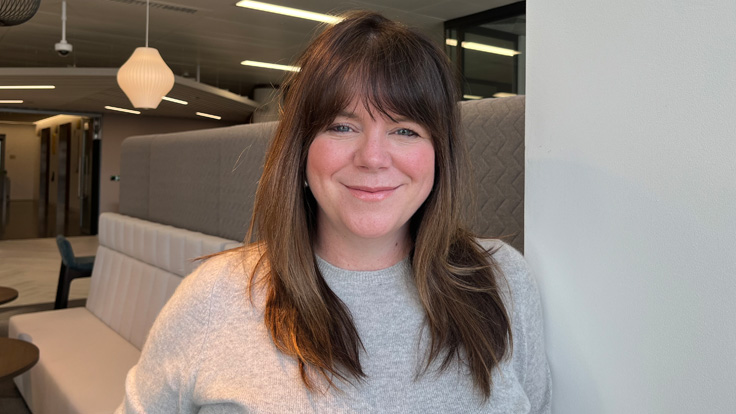March saw my first International Women’s Day since joining RSA as Chief People Officer. The day provides a good focal point to think about how we can reinforce our efforts to achieve gender equity and, ultimately, equality in the insurance industry and beyond.
The theme for this year’s International Women’s Day was #EmbraceEquity and the stated aim is to get people talking about why equal opportunities aren’t enough.” According to the IWD campaign, “equality is the goal, equity is the means to get there.”
Equity and equality may sound like similar concepts, but there is a subtle difference. Equality is about giving every individual or group the same opportunities, while equity considers the different circumstances of those individuals. Only when we recognise and understand the needs of individuals can we treat them in a way that enables them to take advantage of equal opportunities.
To help better enable women in the workplace, you need to identify more than organisational barriers and biases, you first need to unearth points of friction between working lives and personal lives and build adaptations around these. It’s this process that’s seen the creation of things like menopause training programmes, paid carers’ leave, guidance on how to recognise the signs of domestic abuse and paid leave to support those escaping it.
These kinds of initiatives complement flexible working patterns, unconscious bias training and mentoring schemes, to provide a more equal footing for women to progress in the workplace. Additionally, the communication and education that accompany such programmes go a long way toward the ongoing deconstruction of bias.
Interventions such as these at the company level are a great way to help engineer equity; however, by far the most powerful tool in support of equity is to create a safe space for meaningful two-way communication.
An example that is close to me is the way in which we create, communicate and run parenting policies. To achieve equity, we need to recognise that there are many different circumstances facing people on their journey to having a family – this is not a one-size-fits-all issue.
Parenting policies, I would argue, should have the flexibility to consider these differing circumstances. They must embrace a host of needs, like paid leave for IVF treatments and miscarriage, and leave for adoption.
And this must be normalised. We need to be able to discuss these issues – at all levels within an organisation – to give colleagues the agency to talk to their bosses about their needs. It’s important to create a holistic environment, where people can bring their whole selves to work, whatever their circumstances.
In my own experience of starting a family, which was far from straightforward, I had great bosses with whom I was able to communicate about my personal needs – and the needs of the business. This taught me a great deal about how we create these environments where dialogue can take place about the needs of the individual and how those needs can be catered for in the workplace.
As Chief People Officer and a visible female within RSA, it’s my responsibility to help facilitate this communication, help leaders to create environments in which dialogue can happen and ensure that our policies, and the principles that guide them, are flexible enough to achieve equity and be meaningful for our colleagues’ personal circumstances, needs and ambitions. I want to enable people to feel comfortable in speaking up about whatever it is they need and to understand the many paths that they can take to get there.
There’s an element of ‘recontracting’ that needs to go on too. How as a business should we receive the information that we’re given by colleagues when they enter into this dialogue with us? A dialogue is, by its very nature, two-way. Our policies and principles, therefore, have to empower flexibility that works for both parties.
RSA has a commitment to providing hybrid working with flexible working arrangements that are agreed by line managers, for example.
How do we move the dial?
It’s a sad fact that we’re still some way from achieving gender parity in our industry. And it’s clear that employees, in all sectors, want companies to talk transparently and openly about how we achieve equality.
Events like International Women’s Day give us a platform to highlight some of the issues faced by females in the workforce and to spark discussion about how we can address these challenges.
But this is not just for one day and cannot be a tick-box exercise. On the path to greater equity, we all need to communicate better, more openly, and more often, to create the infrastructures that will give women the tools to advance in our industry and be able to bring their whole selves to work. So let’s keep talking!

